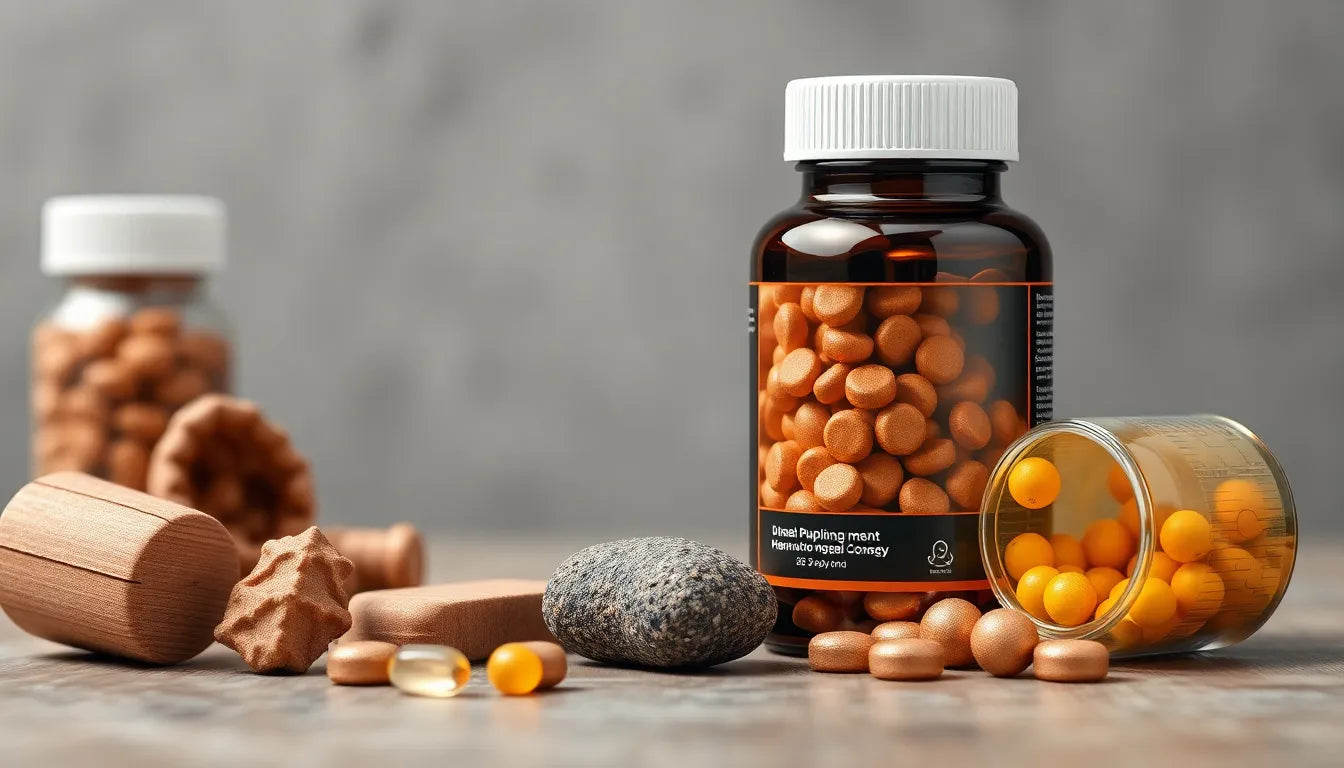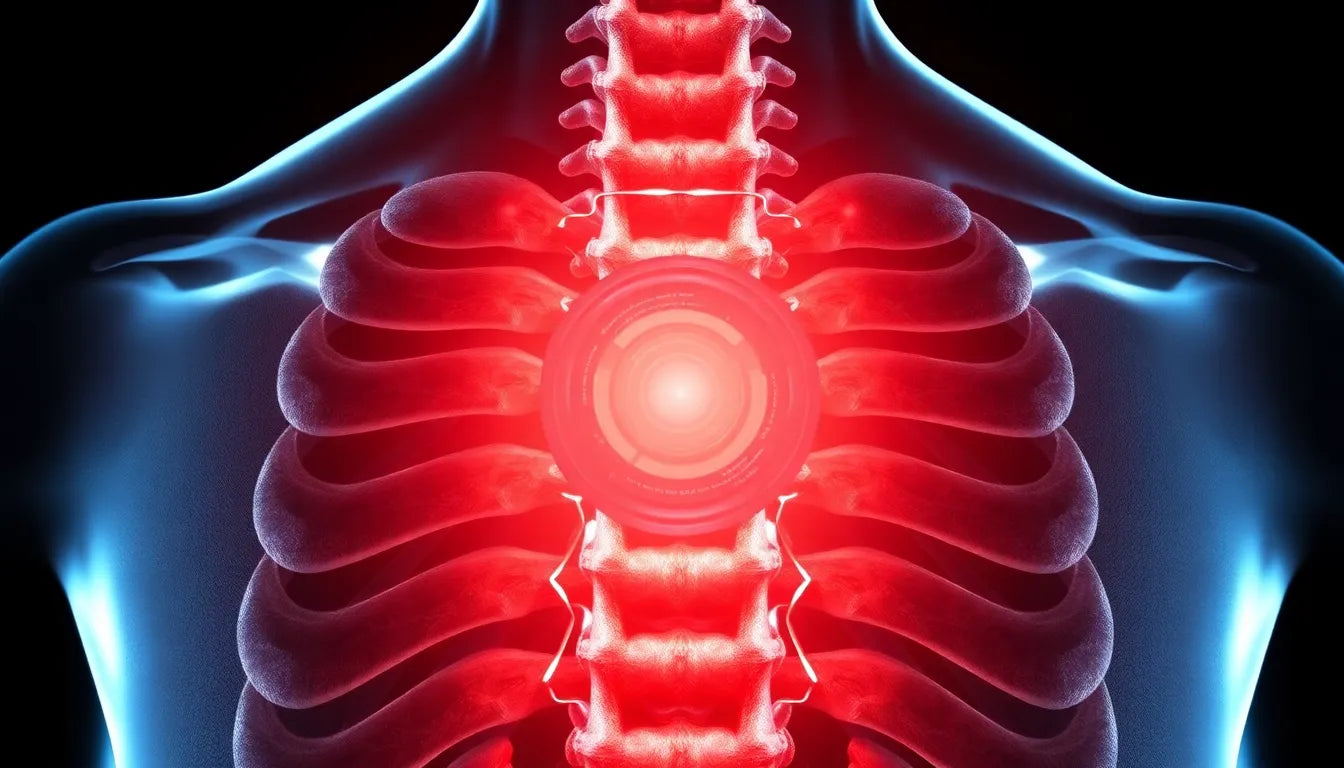Dealing with a herniated disc can be a daunting experience, often accompanied by persistent pain, numbness, and discomfort. These symptoms can significantly impact daily life, making even simple activities challenging. A herniated disc occurs when the soft cushion of tissue between the bones in your spine pushes out, irritating nearby nerves. This can lead to a range of symptoms, from mild discomfort to severe pain and mobility issues. Given the potential disruption to one's quality of life, finding effective relief becomes a priority for many.
the role of supplements in managing disc health
While surgery and physical therapy are common treatments, supplements have emerged as a supportive option for managing disc health. Although not a cure, certain supplements can play a crucial role in alleviating symptoms and promoting the body's natural healing processes. They can help reduce inflammation, support joint and cartilage health, and improve overall well-being, offering a complementary approach to traditional treatments.
setting the stage for supplement use
In recent years, there has been a growing interest in natural and holistic health approaches, including the use of dietary supplements. Many people are turning to these alternatives to enhance their quality of life and manage health conditions like herniated discs. This trend raises an intriguing question: could supplements be the key to your herniated disc relief? By exploring the potential benefits of supplements, you might discover new ways to support your spine health and reduce discomfort.
top supplements for herniated disc relief
When it comes to managing the discomfort associated with a herniated disc, supplements can offer valuable support. Understanding the specific benefits of each supplement can help you tailor a regimen that best supports your spine health.
| Supplement | Purpose/Benefit |
|---|---|
| Glucosamine & Chondroitin | Supports disc structure, counteracts degeneration, improves flexibility. |
| MSM (Methylsulfonylmethane) | Reduces inflammation, assists joint repair. |
| Collagen | Aids tissue repair, promotes disc and cartilage regeneration. |
| Vitamin D | Enhances calcium absorption, supports bone and disc health. |
| Vitamin C | Facilitates collagen synthesis, acts as an antioxidant, aids tissue repair. |
| Vitamin E | Provides immune support, reduces muscle pain, aids tissue healing. |
| Vitamin K | Binds calcium to discs, supports bone formation and healing. |
| Magnesium | Promotes muscle relaxation, supports nerve health, reduces spasms. |
| Omega-3 Fatty Acids | Offers anti-inflammatory benefits, supports joint and disc health. |
| Curcumin/Turmeric | Anti-inflammatory properties, aids tissue healing. |
how supplements support disc health
Supplements work through various mechanisms to promote disc health. For instance, glucosamine and chondroitin are known for their ability to support joint and cartilage health by maintaining the integrity of the disc structure. These compounds can help slow the degeneration process and improve flexibility, which is crucial for those dealing with herniated discs.
Anti-inflammatory supplements like MSM, omega-3 fatty acids, and turmeric play a significant role in managing pain and inflammation. MSM helps reduce inflammation and assists in joint repair, while omega-3s are renowned for their broad-spectrum anti-inflammatory properties. Turmeric, particularly its active component curcumin, is a natural anti-inflammatory agent that aids in reducing pain and promoting tissue healing.
Vitamins also play a vital role in supporting disc health. Vitamin D enhances calcium absorption, which is essential for maintaining strong bones and discs. Vitamin C is crucial for collagen synthesis, acting as an antioxidant and aiding in tissue repair. Vitamin E and K further support immune function and bone health, ensuring a comprehensive approach to managing herniated disc symptoms.
expert insights and clinical findings
Medical clinics and experts frequently underscore the importance of supplements in managing spinal health. Clinical experiences and research consistently highlight the efficacy of these supplements. For example, studies have shown that glucosamine and chondroitin can significantly improve mobility and reduce pain over time. Similarly, omega-3 fatty acids have been linked to reduced inflammation and improved joint health.
Experts from various medical clinics advocate for the inclusion of these supplements as part of a broader treatment plan. This holistic approach not only targets the symptoms but also addresses the underlying causes of disc degeneration and inflammation. By integrating supplements with physical therapy and lifestyle modifications, individuals can achieve better outcomes and improved quality of life.
dietary recommendations and holistic approaches
When managing a herniated disc, supplements are just one piece of the puzzle. A balanced diet rich in essential nutrients can significantly enhance the benefits of supplementation. Whole foods naturally high in beneficial nutrients should be a staple in your diet. For example, fatty fish such as salmon and mackerel are excellent sources of omega-3 fatty acids, known for their anti-inflammatory properties. Leafy greens like spinach and kale provide vitamins K and C, which are vital for bone health and collagen synthesis.
Incorporating these foods into your daily meals can provide a natural boost to your supplement regimen. Additionally, staying hydrated and maintaining a healthy weight can reduce the strain on your spine, further supporting disc health. Combining dietary changes with physical therapy and ergonomic adjustments can create a comprehensive approach to managing herniated disc symptoms.
real-life testimonials and case studies
Real-life experiences and case studies provide valuable insights into the effectiveness of supplements for herniated disc relief. Many individuals have reported significant improvements in pain management and mobility after incorporating supplements like glucosamine and chondroitin into their routines. These supplements have been shown to help rebuild cartilage and support joint health, leading to long-term benefits.
For instance, a peer-reviewed case study highlighted a patient who experienced substantial relief from chronic back pain after a two-year regimen of glucosamine, chondroitin, and manganese ascorbate. This case underscores the potential of supplements to improve quality of life for those suffering from herniated discs. Patient testimonials often reflect similar positive outcomes, with many noting reduced pain and increased flexibility as key benefits of their supplement use.
frequently asked questions
Can supplements cure a herniated disc?
Supplements cannot cure herniated discs but can support symptom management and overall disc health. They work best as part of a comprehensive treatment plan.
How long does it take to see results from supplements?
Results can vary depending on the individual and the severity of the condition. Some may notice improvements within a few weeks to months of consistent use.
Are there any side effects associated with these supplements?
Most supplements are generally safe when taken as directed. However, it is important to consult with a healthcare provider to avoid interactions with other medications and to ensure appropriate dosages.
Should supplements be taken alone or as part of a broader treatment plan?
Supplements should be part of a comprehensive treatment plan that includes physical therapy, ergonomic adjustments, and lifestyle changes for optimal results. This holistic approach can enhance the effectiveness of supplements and contribute to overall health and well-being.
By integrating supplements with a balanced diet and other therapeutic strategies, individuals can better manage their herniated disc symptoms and improve their quality of life.
Sources
- Sapna Med. "Best Supplements for a Healthy Spine."
- London Spine Unit. "Disc+ Spinal Disc Health Supplement."
- DiscSeel. "Supplements for Herniated Disc and Natural Treatment."
- Back Clinics of Canada. "Healing Support With Nutritional Supplements."
- National Library of Medicine (BMC). "Glucosamine and Chondroitin Sulfate Case Study."
- ADR Spine. "Top Supplements for Spinal Health."


















